Description
ABSTRACT
Appraising the Constitutionality and Independence of the Nigerian Tax Appeal Tribunal
Idowu Akinloye*
This paper reviews the legal status of the Tax Appeal Tribunal created under section 59 of the Federal Inland Revenue (Establishment) Act, 2007. It appraises from a critical point of view, the independence of the Tribunal in tax adjudication in view of the enormous powers vested in the Minister of Finance to single-highhandedly appoint the chairman and commissioners of the Tribunal without any reference, consultation or approval of any other authority. The paper also challenges the jurisdictional competence of the Tribunal on two constitutional grounds. First, the ousting of power of the court in determining the validity of the appointment of the members of the Tribunal and secondly, the Tribunal’s interference with the exclusive jurisdiction of the Federal High Court with regard to adjudication bordering on Federal Government revenue generation.
INTRODUCTION
In many nations of the world, tax1 constitutes one of the major ways of generating funds to run the government. Similarly, a country’s tax regime is one major consideration an investor considers before embarking on an investment in a country. Sequel to this, any country wooing foreign and local investors must ensure her tax policies and regimes suit and motivate investors in the area of her interest of development. Tax policies and regimes here include, the compendium of various rules and regulations governing ascertainment of tax, collection and payment of tax payable by a taxpayer. It also includes machineries put in place for resolving disputes arising from tax administration.
Thus, one key factor to be considered by an investor and a would-be tax payer in determining the favourableness of a tax regime is the effectiveness and independence accorded the tax adjudicatory body to settle tax disputes. Where the tax adjudicatory body does not appear independent, investors will be scared. Most private companies in Nigeria have continually cited the inefficiency and other problems associated with the tax system as their reasons for relocating to neighbouring countries to do business, thereby depriving the country of major source of revenue.2
Thus, to achieve a favourable tax regime, the government overhauled its tax laws. The consequences of this birthed the enactment of the Federal Inland Revenue Service (Establishment) Act, 2007 (hereinafter referred to as the Act). The Act provides for the administration of taxes payable to the Federal Government. It further provides for the establishment of the Tax Appeal Tribunal (hereinafter referred to as the Tribunal) as the adjudicatory body to resolve disputes arising
* LL.M, BL. Doctoral Student, Rhodes University, Grahamstown, South Africa. Lecturer, Faculty of Law, Ajayi Crowther University, Oyo.
- Garner Bryan, Black’s Law Dictionary (8th edn., New York: Thompson West, 2004) 1496 describes tax as a “monetary charge imposed by the government on people, entities, transactions or property to yield public revenue”; Chief Justice Lathan of the Australian Supreme Court in Matthews v Chicory Marketing Board (Viet) (1938) 60 C.L.R. 263 at 276, defined tax as a compulsory exaction of money by a public authority for public purposes; or taxation is raising money for the purposes of government by means of contributions from individual persons.
- J. A. A. Agbonika, ‘Tax Dispute Resolution in Nigeria: A Storm in a Tea Cup’ (2014) 29 Journal of Law, Policy and Globalization accessed 26 June 2016.

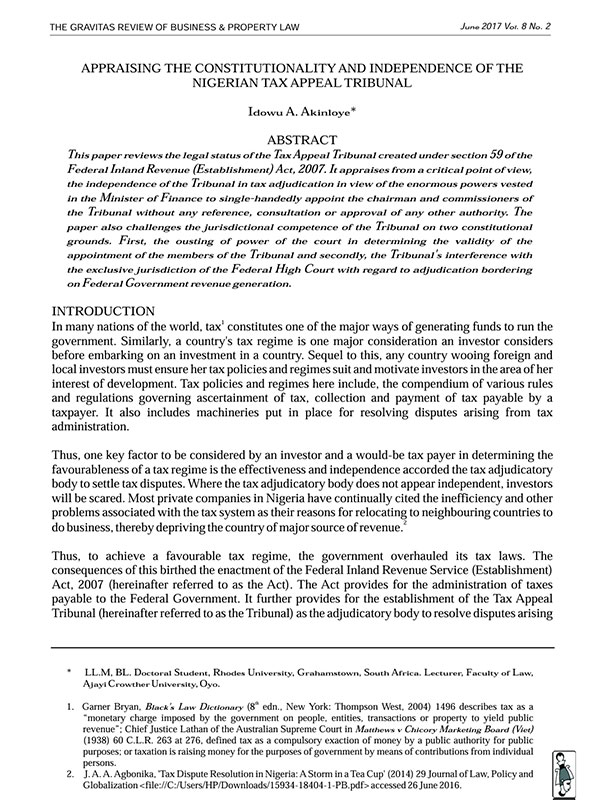
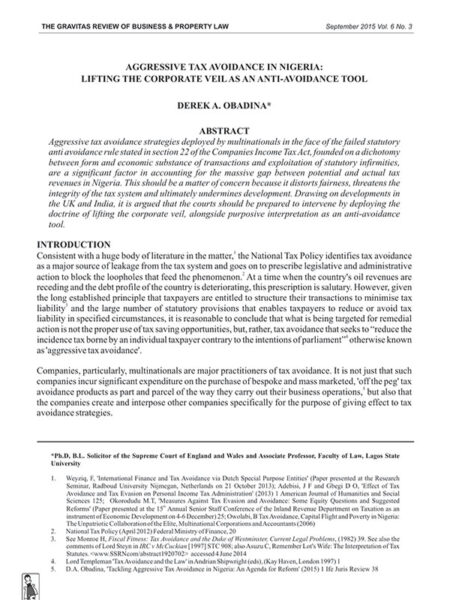
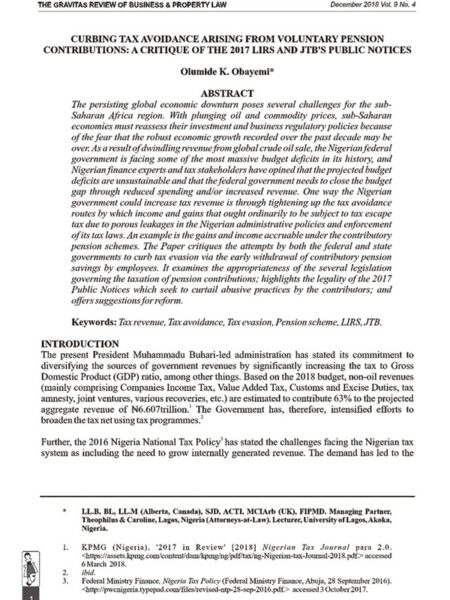
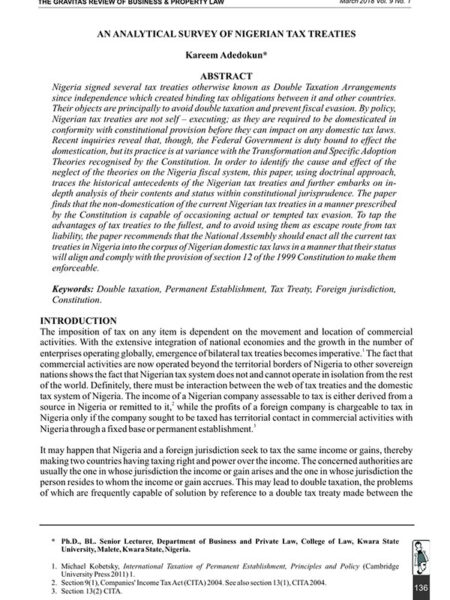
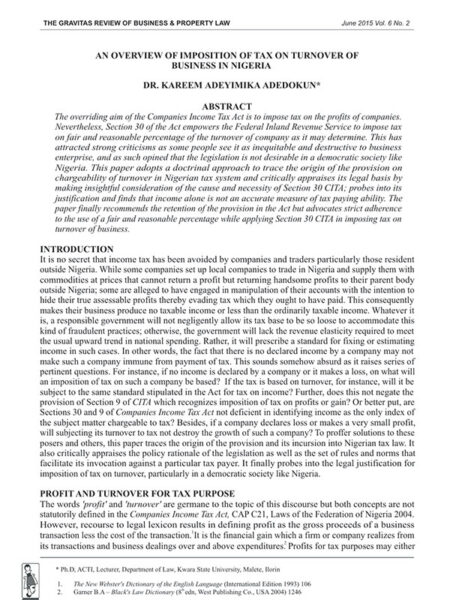


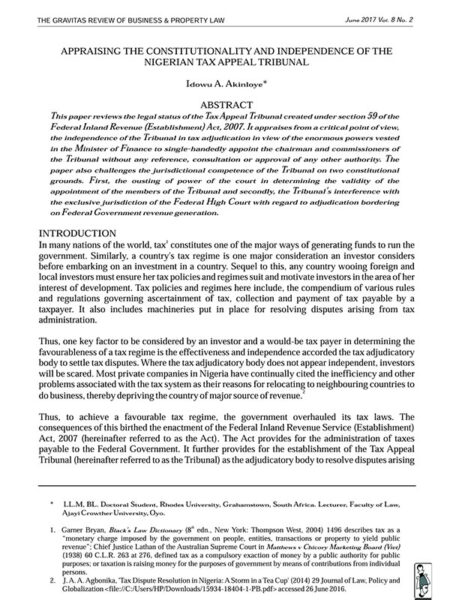
Reviews
There are no reviews yet.